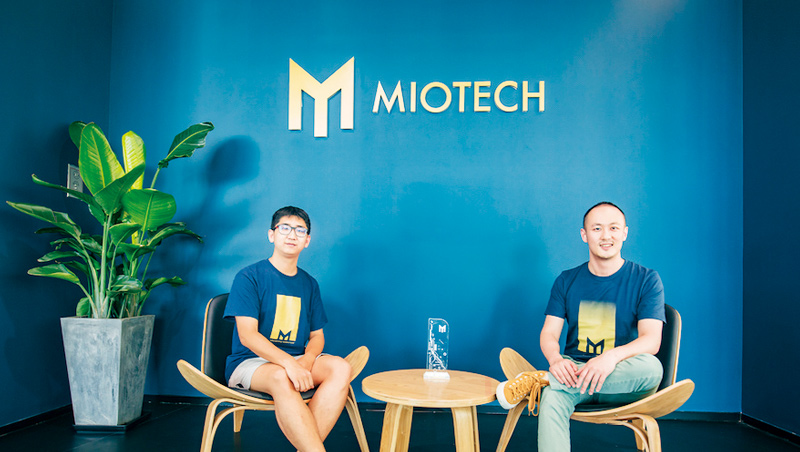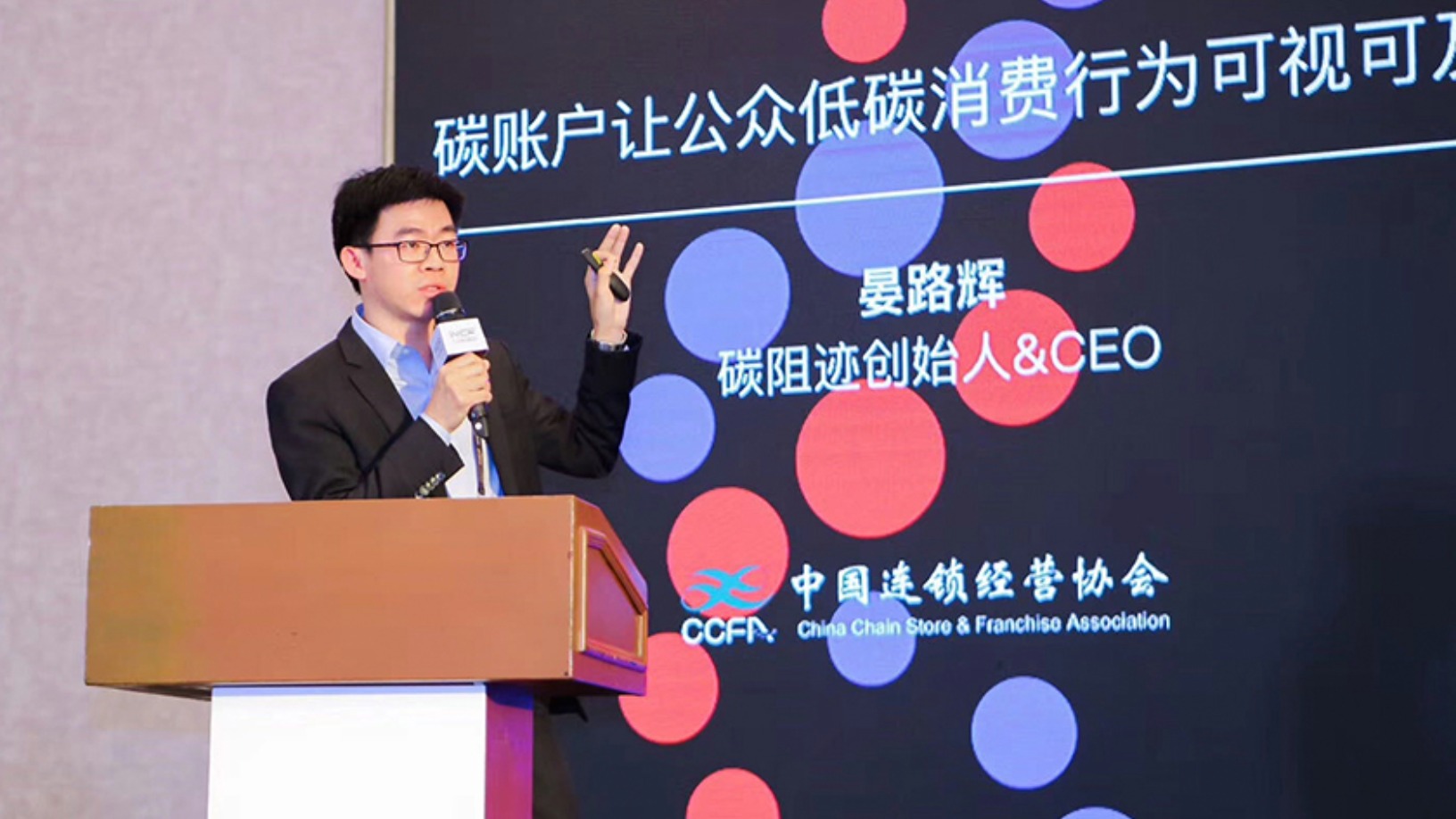A foreign asset manager had a mandate to invest $60bn in China but ended up allocating only $20bn as it could not get enough data to assess if its environmental, social and governance (ESG) targets would be met, in order to back its investment decisions.
This anecdote, which was shared by Jason Tu, the CEO and co-founder of Hong Kong-based fintech startup MioTech, is not new. Although ESG disclosure in China has been improving in recent years, less than 25% of companies listed in mainland China published their corporate social responsibility (CSR) reports in 2020.
Aware of this gap, Miotech added an ESG risk management module to its market intelligence platform AMI in 2019. The startup saw its ESG-related business grow exponentially – reaching a third of the company’s revenue that year, in just four months. Demand for its ESG data and analytics continues to grow, especially from foreign investors, Miotech says. China scrapped foreign investment limits on asset management firms in April 2020, which led to its foreign direct investment (FDI) soaring 81% from 2019 and it overtook the US to become the number one destination for FDI.
Today, MioTech’s SaaS platform covers more than 1m private and public companies in Greater China, tracking over 400 ESG data points to provide financial institutions, corporates and individuals with ESG data, ratings and consulting services.
"Many of our clients have well-established methodologies, but they lack a mature framework that would enable them to collect the relevant data [in China] to support their analysis of different sectors, for ESG performance and responsible investing,” Tu said.
Last month, MioTech raised an undisclosed amount of funding in a Series B+ round from Singapore’s sovereign wealth fund GIC and Chinese securities company Guotai Junan International. Its existing investors also include Moody’s, HSBC, TOM Group, ZhenFund and Horizons Ventures, the private investment arm of Hong Kong billionaire Li Ka-shing.
Plenty of (unstructured) data
The startup was founded in Hong Kong in 2016 by Tu, a former banker, and Liu Tao, a computer engineer. Both had studied and lived in the US, and met in Silicon Valley where they began brainstorming startup ideas together, before returning to Hong Kong.
Their plan: to help financial institutions better manage risk. The pair had thought of ESG from the outset but as it was still a very new concept in China back then, MioTech started with the market intelligence platform AMI, which it launched in 2018. Both co-founders were named to the Forbes 30 under 30 List under the Finance and Venture Capital category in 2018.
Apart from ESG-related data and analytics, MioTech has also developed solutions for Chinese companies in ESG reporting, energy efficiency management, and the tracking and reduction of carbon emissions. The startup has also worked to raise awareness of the UN’s Sustainable Development Goals among individuals, launching a mini-app in WeChat called Mio this July to encourage green lifestyles. Users get credit points for their low-carbon choices in daily life, which they can redeem for gifts offered by MioTech’s green-conscious partners.

MioTech has developed quantitive criteria and data points for ESG evaluation, as a solution to the lack of quality data, a problem that is especially acute in China. The country, which has no national ESG standards, could not simply adopt overseas standards due to different local conditions.
“For example, financial fraud is uncommon abroad, [unlike in China], and few [foreign] financial institutions take it into account as a corporate governance risk,” Tu, who has an MBA from Stanford, a master’s from Toulouse School of Economics in France, and a bachelor’s from Purdue University, said.
CTO Liu has a master’s degree in computer science from Cornell University and is an expert on distributed databases and large data infrastructure. He worked in the US as a senior software engineer at the marketing platform Turn (later known as Amobee).
According to Tu, there is actually plenty of data but most are unstructured. For example, governments’ websites contain information about enterprises punished for labor or environmental breaches. Even social media has data on employees exposing their employers’ malpractices like discrimination or consumer fraud.
“In China, lots of data from official sources are presented as images, PDF documents and even Excel files,” said Tu. That’s where MioTech’s AI-powered algorithms become handy. The company uses natural language processing and image recognition to make sense of unstructured data from a variety of publicly available sources including regulators, NGOs and CSR reports.
The data is injected into a massive graph database with supply chain, shareholding and investment relationships. MioTech then uses its patented entity recognition and graph traversal technologies to integrate the data into its identified data points that reveal insights into ESG risks and opportunities.
In order to guarantee the reliability of its data, MioTech has introduced expert-rule-based verification mechanisms. “For example, if we get data that says a company is being fined by the Environment Protection Agency for several billion dollars, which is larger than its market cap, it is obviously wrong,” Tu said. “This is the simplest example of expert rules which we have set up internally to manage the data.”
A nascent trend
In 2019, after two years of work, MioTech incorporated the ESG module in its AMI platform – just as the Chinese authorities signaled a greater focus on ESG disclosure.
The trend accelerated with the China Securities Regulatory Commission issuing new rules in July this year, requiring domestically listed companies to add ESG disclosures to their annual financial reports.
As a result, MioTech has seen stronger ESG-related demand from Chinese corporates. Its number of domestic non-financial-institutional clients rose 20% in July from the year-ago period, making up half of the total.
Before 2020, MioTech’s ESG-related revenue came entirely from financial institutions, including banks, insurers and rating companies. By July 2021, business from non-financial corporates comprised 20% of this income segment.
With 150 employees, MioTech has offices in Hong Kong, Shanghai, Beijing and Singapore. The company aims to double its headcount to 300 and expand to other countries in Southeast Asia.











